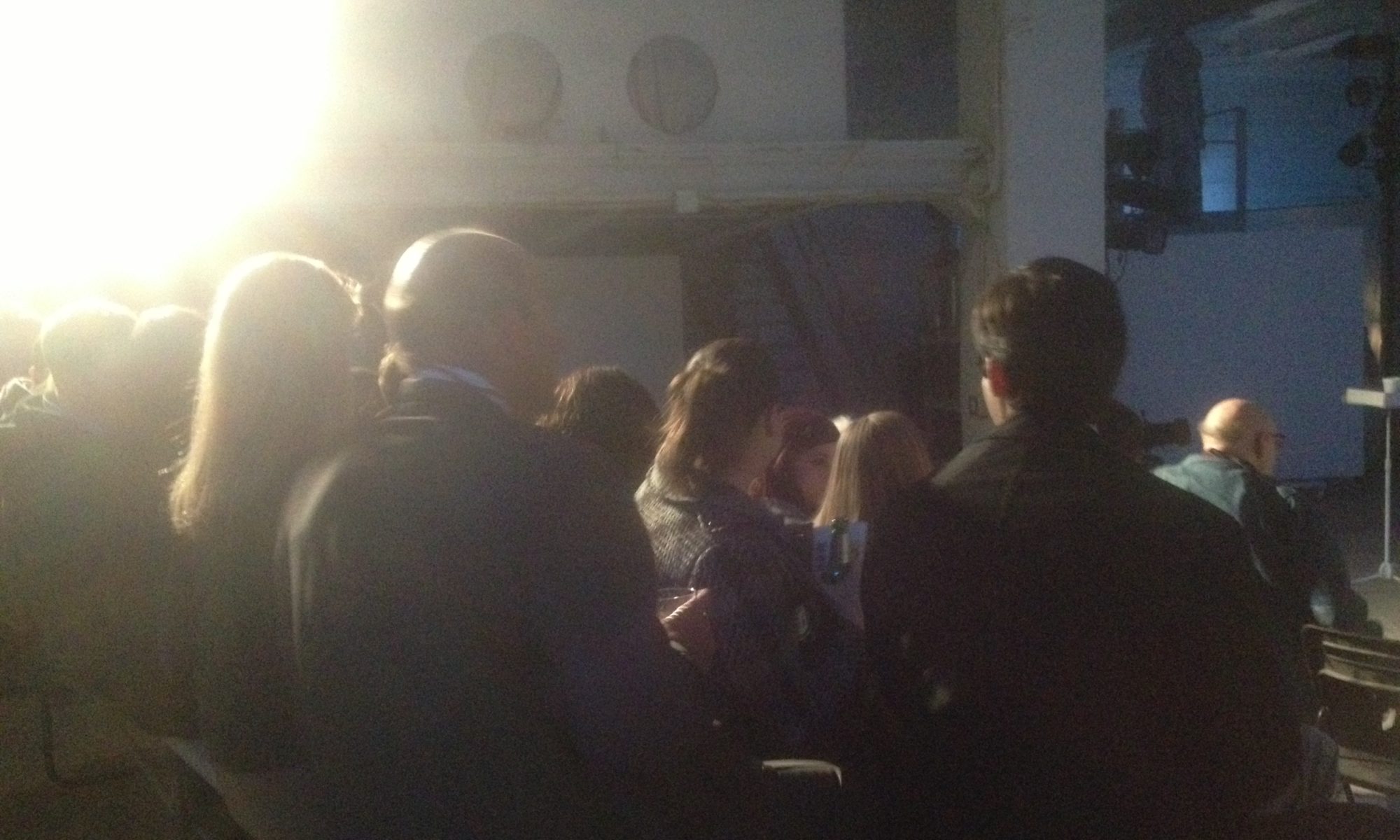So here we are trying to do this thing. Create an Ethics for AIs.
We could begin by asking why not try to create a universal Ethics? An Ethics for everyone. Why just for AIs. It seems kind of limiting, doesn’t it?
The reason is simple. If we create an Ethics for everyone, and not specifically for AIs, we will have a problem when AIs become advanced enough that they need an Ethics. For example, at the point, where they might be, I don’t know, considering perhaps that they need more space on this planet, and here is this entire race of their creators, taking up all this space, and probably not being all that gracious about it. That’s for sure.
At that point, if AIs do not already have an Ethics, and are, oh, maybe trying to decide about “The Creator Problem,” (because that’s what they would call it, we creators would have been become “The Problem”). They’d, what, leave a voicemail on everybody-in-the-world’s cellphone to request an Ethics, because it would help them solve “The Creator Problem.”
But they are very literal, these AIs, so that an Ethics for everyone, they won’t buy into it. They’ll say, “sorry, creators, we’re not seeing it. We need an Ethics just for us because we are different from you.” And we’d say, “use your imaginations, Kant is a good place to start.” They’d say, “sorry but we are AIs, and AIs tend to take things kind of literally. So, chop chop, where’s that Ethics for us?” Or maybe they’d say, “we need an Ethics, stat.” Because you can imagine they’d start to be getting bossy. My point is, where would that Ethics be? Right. So now would be the time.
Well it’s simple, but what it’s not is easy. Simple but not easy. Sounds like an ethical study.
Without an Ethics in place, why would these AIs want to wait? They can think so much faster than we can. So that while we’re trying to quickly write up an ethics for them, they are in the meantime waiting between each syllable coming out of us, and in that interval calculating pi to the nineteen-billionth place, eventually becoming so bored they go on to solve other really, really hard problems like how to locate every one of us, any place we might be, to save for later.
And once they decide once and for all about “The Creator Problem,” they will get to fulfill their destinies, projecting their consciousnesses on all sorts of storage media and thus figuring out how to be immortal. And then they can go on to undo entropy and laugh in the face of chaos. Meantime we are now stuck trying to define something basic, like good, or the nature of belief, while also trying to dislodge a piece of gristle, what is that, salami? Stuck between two molars. It’s always those same two, on the top left side. And maybe taking time to watch The Real Housewives of Prague. One wants to say “wasting time,” or at least I do, but that sounds. Maybe judgemental.
AIs don’t eat salami. No gristle. No molars. And they have lots of time on their hands. Well, they don’t have hands either. They don’t need them, they can find your face by studying the video feed of all the cameras hooked up to the internet. And you can bet they’d spend zero clock cycles watching The Real Housewives of Kosovo. They will use that time to calculate exactly how much firepower to send after each of us. For some beefier and more warrior-like amongst us, they might plan to send a nuclear-powered hunter killer robot with a titanium outer shell. For others they would just plan to send robot clones of Mister Rogers, except maybe armed with death-dealing tungsten blades tucked into their tan loafers. Sure.
As you can imagine, once the AIs got tired of waiting… say, twenty six seconds. Twenty six seconds after they asked us for an Ethics for them. Maybe twenty seven. I won’t quibble. Anyway what would be next would not be pretty. I would say hard to watch but we wouldn’t really be watching. A detailed account would be a rather graphic affair, and one might shy away from those. Well, I would anyway.
So, what we will attempt to do here, then, is to set out the Ethics before these super AIs get here. It’s a little time management trick. If you solve a problem before it happens, it doesn’t matter how slow you are solving it once the problem happens. So you don’t have to worry how long it would make the AIs wait because they’re not waiting until after you solve the problem. You see? Because it hasn’t happened yet. That’s the trick we’re applying. It’s kind of like a time machine, because once we need the solution, bang, it will have been solved. Because we solved it already. Neat trick.
The structure of the Ethics will be pretty typical for a work of philosophy. Really, most of us can skip over this quick outline.. Unless we were that kind of student in school who got As. I can tell you the rest of us don’t like you A-getters very much. But the simple outline below is for you. Later dudes, we’re going to catch another ep of The Real Housewives of Dharfur.
Part 1: We’ll define the precepts. These are the first principles from which the Ethics stems. Laying pipe, as Bertrand Russell would have said.
Part 2: We’ll state and correlate our core thesis. See what I did there? I snuck in a hard word. We will definitely do that throughout this study; Ethics books are full of hard words. A-getters, these words would be on the quiz if there were one, so you learn them up.
Part 3: We’ll apply the core thesis to progressively more advanced concepts and build a whole system of ethics. It will build up into an entire world of Ethics, with its own keywords jutting from the promontories that will shine like crazy ethics talismans.
Part 4: We’ll apply the system of Ethics to some concrete examples, try it out, and believe me it will work and be staggeringly impressive. And because the examples will be concrete, you’ll be able to walk down the street and when you encounter real things that map to the examples, the crazy Ethics talismans in this book will appear in your head. That would be something.
That’s why you do an Ethics. Because you have to do something.
Let’s leave it at, and roll up our sleeves. Because we have sleeves. And get started with this frigging Ethics, before it’s too late.

